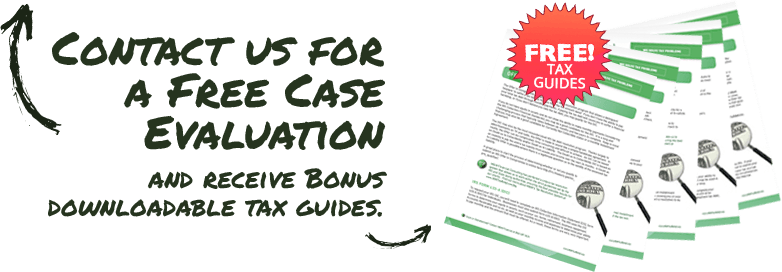IRS Payroll Tax Debt and Business Owners
Have you ever wondered how you got so lucky? After all, you Sir or Madam, are a Business Owner. Now don’t take that as sarcasm, I really mean it. I’m a business owner myself, if that’s not already clear, and trust me, that question has ricocheted through my brain on occasion. So, since we’re members of the same special club of sorts, I figure that we’re also standard bearers, by default, of a uniquely American concept: The Entrepreneurial Spirit.
You probably know all too well by now that to make it as a Business Owner, you must wear every hat on the rack: Jack or Jill of All Trades, Professional Prognosticator, Possessor of Steel Nerves, and Adept Maker of Gut-Wrenching Decisions. It also helps if you don’t take it personally that one or more of your employees are bound believe that you’re a Complete (insert profane term here). An essential hat to wear is that of Tax Collector. A crucial aspect of operating a business with employees is the withholding of tax from their paychecks, and handing over those funds to the IRS in a timely manner. We do this, by making employment tax deposits monthly or semiweekly through the Electronic Federal Tax Payment System (EFTPS). When a business doesn’t pay its employment tax, the IRS goes into collection mode.
IRS Beast Mode Collections
Needless to say, unpaid tax of any kind makes the IRS angry. And no one likes the IRS when it’s angry. But unpaid payroll tax turns the IRS into a whole different animal. You see, the IRS gets hit twice when employment taxes aren’t paid. The first hit comes when the employment taxes aren’t turned over to the Service. The second is when the employees file their tax returns and receive a refund of tax that was never paid in the first place.
Like David Banner before he transforms into the Incredible Hulk, the IRS gives recognizable warning signs before transforming into the incredibly large, green collection beast that destroys businesses and bank accounts. Collection notices come first, often followed by bank levies that smash and destroy cash flow, crippling a business. And, if the tax isn’t addressed promptly by the business, the IRS collection beast looks at the Responsible Individuals of the business to demolish and crush until they pay back the tax debt personally.
941 Employment Tax
The IRS views the nonpayment of payroll tax as a type of theft, because most of the employment tax to be paid is the employee’s money. Employees trust their employer to withhold their income tax, Social Security tax and Medicare tax, and pay it to the IRS on their behalf. When the tax isn’t paid, the employee isn’t penalized by the IRS or the Social Security Administration, but the business and Responsible Individuals operating the business end up in the IRS’ cross-hairs.
Congress has given the IRS the power to collect a significant portion of the unpaid employment tax debt from the Responsible Individuals of the business. The tax portion that can be transferred is called the Trust Fund Recovery Penalty (TFRP) and it’s assessed to the Responsible Individuals as a Civil Penalty that the IRS can collect in tandem with the business. That’s right. The Service can collect the same tax from a business and an individual! There is no “corporate veil” to protect business owners when delinquent payroll tax is owed. And, you can’t discharge the TFRP in bankruptcy.
TRUST FUND RECOVERY PENALTY
By now you may be thinking, “Who is a Responsible Individual?” Well, the IRS can assess the TFRP to anyone it deems “willful” and “responsible” for making the Federal employment tax deposits on behalf of the business. This could be shareholders or officers of the business, check signers on the business checking account, an employee of the business, even your accountant. Unpaid employment/payroll tax is an offense the IRS takes very seriously.
At M&M our goal for each of our business clients that owes employment tax is to secure a formal Installment Agreement through the business and cross reference the personal assessment to it, allowing the business to pay back its own debt. Although the IRS continues to make this harder and harder to do, we’ve been very successful in achieving it for our business clients. However, we always recommend that our clients pay as much as they can toward the Trust Fund Recovery Penalty before securing a formal Installment Agreement with the IRS to limit their personal exposure.
TFRP Assessment to the Responsible Individual(s)
There are rules that the IRS must follow regarding collection of the TFRP from Responsible Individuals. One very important rule involves the Assessment Statute Expiration Date (ASED). The Service only has three years from the date the employment tax is deemed to be assessed to a business to turn around and assess the TFRP to a Responsible Individual. Once the ASED has expired, the IRS cannot assess the TFRP to any individual and therefore cannot collect the tax from any individual. This rule has saved a few of M&M’s clients over the years from the responsibility of paying the TFRP personally. But I wouldn’t rely on an expiring ASED turning the Incredible Hulk back into David Banner. The IRS doesn’t miss many opportunities to collect employment tax.
The lesson here is to always file and pay your employment taxes on time and avoid the Incredible Hulk of collections, the IRS. We understand that operating a business is difficult and tax compliance isn’t always possible. M&M’s Tax Resolution System, developed and tested since 2005, allows us to work within the strict guidelines set by the IRS and State taxing authorities, ensuring the best possible results for our clients. Resolving delinquent 941 payroll tax liabilities and the personal tax debts that result from them are M&M’s specialty. Contact us here or call us at 866-487-5624 to find out how M&M’s Tax Resolution System can help you.








